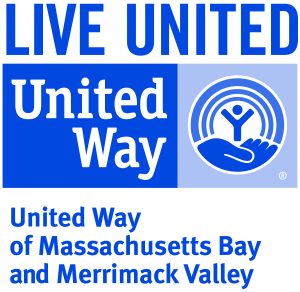A member of the U.S. House of Representatives has signed-on to head a permanent bipartisan caucus on philanthropy while two senators have introduced legislation to allow IRAs to be used for charity as the nonprofit sector again becomes a focus of some members of Congress. Companion legislation was also introduced in the House.
The Council on Foundations is spearheading a movement with the U.S. House of Representatives to form the first-ever Congressional caucus dedicated to the nonprofit sector. Although no official statement has been made about the scope of the caucus, some in the sector are already concerned that the focus might be too narrow.
Independent Sector lead a group of more than 550 charities to work with Sen. Byron Dorgan, D-N.D. and Sen. Olympia Snowe, R-ME, who introduced the "Public Good IRA Rollover Act of 2007," a giving incentive that encourages older Americans to donate to charitable organizations.
Rep. Robert "Robin" Hayes, R-N.C., is the first to sign on as co-chair of the new Congressional Philanthropy Caucus, and currently the only member of Congress linked to the initiative.
A spokeswoman for Hayes said they are seeking a democratic co-chair in the House. An official at the Council on Foundations (CoF), said the goal is "to have both a democrat and republican co-chair the caucus in each respective chamber (of Congress)."
The announcement came on the heels of this year’s Foundations on the Hill, an annual lobbying event co-sponsored by the Washington, D.C.-based CoF and the neighboring Forum of Regional Associations of Grantmakers. Nearly 400 national foundation trustees, executives and staff gathered for the fifth-annual event, held Feb. 27-28. This year the goal went beyond having discussions with members of Congress about philanthropy.
"The concept was agreed upon at the end of last year, and we added it to this year’s Foundations on the Hill agenda," said Rodney Emery, vice president of government relations and public policy at CoF. Emery said the objective of establishing a caucus is to provide a platform for members of Congress and their staff to meet with foundation members to discuss in a non-partisan fashion the issues that face the nonprofit sector. He said the focus will be "on philanthropy, which is basically the foundations."
Hayes, whose family runs the Cannon Foundation, in Concord, N.C., is "very aware of the issues that face foundations, whether it’s tax rules and grant processes, things like that," said Carolyn Hern, communications director in Hayes’ Washington, D.C., office. Hern said the caucus will be a vehicle to better inform members of Congress about the importance of philanthropy, nonprofit, and foundation work in local communities.
Still, some sector leaders are wary. "Generally, I think that it’s helpful to have any vehicle for legislators to better understand the nature of philanthropy," said Gary Bass, executive director of OMB Watch, a D.C.-based advocacy group. "I am a little bit concerned that it’s just solely focused on foundations instead of on charities at large."
While there’s been no official statement about the range of issues on which the caucus will focus, Bass said it’s likely to be around foundations. "I think that’s good. But I also think there are a bigger set of issues," said Bass. "I don’t think many members of Congress fully understand the structure of the nonprofit community." Bass said this lack of understanding has "huge implications" for important sector issues, such as engagement on public policy, and even broader implications "for just understanding the sector and what role it plays in the community."
Kay Guinane, director of nonprofit speech rights at OMB Watch, said she’d like to see Congress become better educated about the sector and more effective within, and a caucus is one way to facilitate that.
"(A caucus) is something where lawmakers might have a better chance at seeing the bigger picture, since some of (the issues impacting the sector) fall in a variety of (Congressional) committees," said Guinane. She noted her many attempts to address the release of charitable funds seized from organizations designated as supporters of terrorism with the U.S. Department of the Treasury, "and we just bounce around," she said, "because it doesn’t fit neatly into any one committee."
According to Guinane, the caucus will be helpful in creating better relationships between the nonprofit sector and members of Congress. "Overall, there’s been a pretty hostile attitude towards philanthropy and charity coming off the Hill in the last several years," said Guinane. "I think a lot of that is based on misinformation."
If the new Congressional Philanthropy Caucus does spotlight only foundations, Bass said he suspects one reason is a potential or perceived misuse of funds by some foundations. "And, I can’t imagine that the Gates/Buffet, the size of the foundation, won’t be something that needs to be discussed," he added. Bass mirrored Guinane in his desire that a big part of the focus of the caucus be on education. "The whole notion of philanthropy, the landscape has changed over the years," he said.
"I don’t think the caucus’s role is to supplant or replace the role of oversight," added Bass. "But I do think that the purpose of a caucus is to educate members around a set of issues so that when they go do oversight, or when they have to vote on issues, they’re better educated and know how to do that." Bass said he’d like to see the caucus members look at issues of transparency, who foundations are accountable to, and who should control a foundation’s money.
"If it’s simply a way of rubbing elbows with the powerful foundation leaders, then it’ll be a missed opportunity," said Bass. "If it becomes a way of better understanding the foundation community and philanthropy in the United States, and to strengthen that both through encouraging more and holding greater accountability, then I call it a huge success."
Regarding the Public Good IRA Rollover Act of 2007, it extends and broadens the current IRA Charitable Rollover, which allows people to make charitable contributions directly from their IRAs without suffering adverse tax consequences. Unless the new bill is enacted, this giving incentive will expire at the end of this year," said Diana Aviv, president and CEO of Independent Sector.
Since it was enacted in August 2006, the IRA Charitable Rollover has enabled Americans to make new contributions to the nonprofits, although reliable statistics on the amount donated is not yet available.
For more information regarding the Pension Protection Act and the IRA Charitable Rollover provision, go to www.independentsector.org












